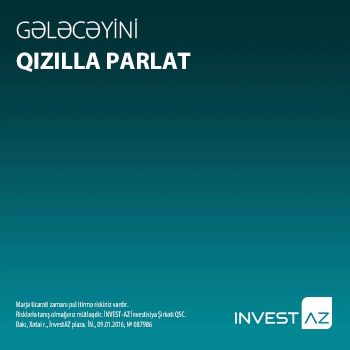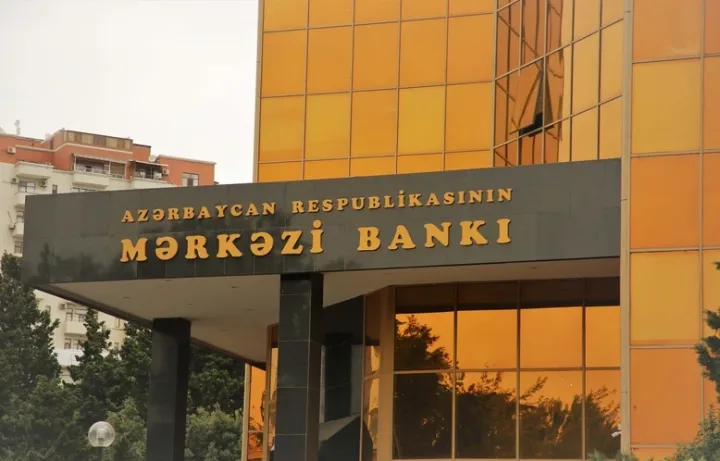S&P PAŞA Bank və Kapital Bankın reytinqlərini dəyişmədi
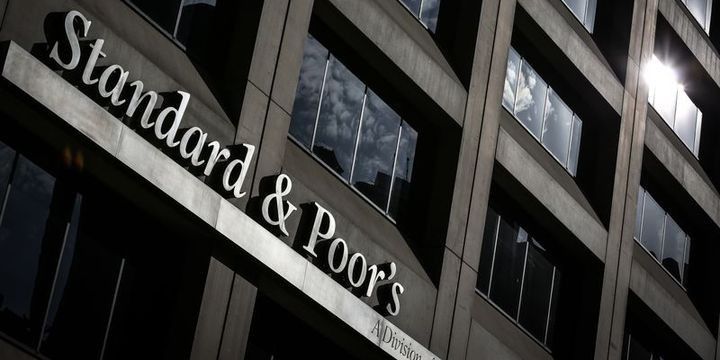
“Standard and Poor’s” (S&P) beynəlxalq kredit reytinqi agentliyi PAŞA Bank-ın və Kapital Bankın reytinqlərini təsdiq edib.
"Marja" Agentliyə istinadən xəbər verir ki, agentlik hər iki bankın kredit reytinqlərini dəyişməz olaraq saxlamışdır.
PAŞA Bankın və KapitalBank kredit reytinqləri "BB-/Negative/B" səviyyəsində təsdiq edilmişdir.
S&P, Azərbaycan Beynəlxalq Bankının restrukturlaşdırılmasından sonra dövlətin sistem əhəmiyyətli banklara dəstək ehtimalını nəzərdən keçirir.
Kapital Bank And PASHA Bank Affirmed At 'BB-/B', Although Government Support Now Uncertain; Outlooks Negative
- International Bank of Azerbaijan's (IBA's) recently missed scheduled coupon payments and subsequent US$3.3 billion debt restructuring have changed our view of Azerbaijan's willingness and predictability to protect senior creditors of systemically important banks.
- We now view Azerbaijan's likelihood to provide support to the domestic banking sector as uncertain, since government support was not timely and sufficient for all groups of IBA's senior creditors, which then had to enter into the debt restructuring.
- We therefore no longer include any notches of uplift for potential government support in our assessment of Azerbaijan's systemically important private-sector banks' creditworthiness.
- We believe that the second- and the third-largest banks in Azerbaijan, privately-owned Kapital Bank and PASHA Bank, could benefit from IBA's financial rehabilitation and could improve their business positions and customer diversity in the next 12-18 months.
- We are therefore affirming our 'BB-/B' ratings on PASHA Bank and Kapital Bank.
- The continuing negative outlooks on both banks reflect our view that their financial and business profiles, especially asset quality, could remain under pressure and may deteriorate further if the already pronounced economic risks in Azerbaijan increase.
MOSCOW (S&P Global Ratings) June 7, 2017--S&P Global Ratings said today that it had revised its assessment of the Azerbaijani government's likelihood to provide support toward the domestic banking sector to uncertain from supportive. Despite this revision, the 'BB-/B' long- and short-term counterparty credit ratings on Kapital Bank OJSC and PASHA Bank were affirmed. The outlooks remain negative. We note that support to state-owned International Bank of Azerbaijan (IBA) was not timely and sufficient for all groups of IBA's senior creditors, and IBA has subsequently entered into a debt restructuring process. We now believe that future government support for systemically important banks in the country is likely to be more unpredictable than our previous assumptions. Because they are banks of high systemic importance, the long-term ratings on PASHA Bank and Kapital Bank had benefited from one notch of uplift for potential government support. But because of our revised view of support to systemically important banks, we no longer include any notches for potential government support in our assessment of the banks' creditworthiness in Azerbaijan, and will assess only the banks' stand-alone credit profiles (SACPs). IBA missed a scheduled coupon payment on its subordinated note, and on May 11, 2017, announced it would undertake a debt restructuring to address its weak financial position and reported negative equity at year-end 2016. IBA is the largest bank in Azerbaijan, accounting for an estimated 40% of system assets. The affected debt totals US$3.3 billion and includes several foreign trade financing facilities, loans, and Eurobonds. It also includes a US$1 billion deposit at the IBA by State Oil Fund of the Republic of Azerbaijan (SOFAZ), the country's sovereign wealth fund. According to the proposals unveiled during an investor presentation on May 23, the plan is to exchange most of these instruments into sovereign bonds with longer tenors and a financial haircut. Creditors will also have an option to invest in the new IBA seven-year bonds. We understand that none of the debt included in the exchange had an explicit sovereign guarantee. The final terms of the exchange will depend on the outcome of the creditors' vote, which the authorities and IBA management expect will take place in July. According to the official announcements, the restructuring will not affect the bank's retail or corporate deposits. The ratings on Azerbaijan remain primarily supported by the sovereign's strong fiscal position, underpinned by the large foreign assets (about US$33 billion as of April 1, 2017) accumulated in SOFAZ (see "Azerbaijan 'BB+/B' Ratings Affirmed Following Announced IBA Debt Exchange; Outlook Remains Negative," published on May 26, 2017). We view the trend of economic risk in Azerbaijan as negative, which reflects our concerns regarding the impact of macroeconomic factors on the domestic banking sector. We estimate Azerbaijan's economy contracted by 0.5% in 2017 after contracting by 3.1% in 2016. We expect growth to recover to about 3% starting in 2018. We anticipate that the government may reduce some of its capital expenditures in response to lower oil prices. This could put additional pressure on banks' financial fundamentals if asset quality deteriorates because of borrowers' reduced debt-servicing capacity. Therefore, we think that the Azerbaijan economy remains in a correction phase with a high impact on its banking sector. This can be seen in elevated credit costs and nonperforming loans (NPLs) on the banks' balance sheets. We expect bank lending to demonstrate quite anemic or even negative growth over 2017-2018; however, NPLs, including restructured loans and credit costs, will likely trend up to an estimated 23%-25% of the banks' loan portfolios, with restructured loans accounting for about a half of that amount. We view the trend for industry risk in the Azeri banking sector as stable. We expect the industry structure to remain broadly the same. Although the banking system has a relatively high level of core customer deposits and no net reliance on external funding, steep manat depreciation over the past two years has led to protracted currency misbalances between banks' assets and liabilities, owing to the rapid growth of the share of foreign currency funding to more than 80% of banks' customer funds by the end of 2016. This was a result of massive conversion of deposits into foreign currency following the manat's depreciation. Our view of increased economic risk puts pressure on our anchor of 'bb-', which is the starting point for our ratings on banks operating predominantly in Azerbaijan. At the same time, we believe that Kapital Bank and PASHA Bank--the second- and third-largest banks in the country--could benefit from IBA's financial rehabilitation and could improve their business positions and customers' diversity in the next 12-18 months. We are therefore affirming our 'BB-/B' ratings on PASHA Bank and Kapital Bank, and maintaining our negative outlooks on the banks. KAPITAL BANK The affirmation of our ratings on Kapital bank reflects our view that the bank will maintain, and likely increase, its already material market share in Azerbaijan, while its operating revenues continue increasing progressively and its profitability remains high. We believe that Kapital Bank is a sustained outperformer in its peer group, thanks to the structural changes and competitive trends that are strengthening its creditworthiness, which is more consistent with a higher rating than its SACP, which we assess at 'b+'. Therefore, the rating on the bank benefits from a positive notch above its SACP for flexibility. The affirmation also reflects our expectation that the bank's capitalization will remain moderate in the next 12-18 months, while its asset quality and approach to risk management will be in line with the system average. We continue to assess Kapital Bank's business position as adequate, balancing its sound client franchise and stable operating revenues, focusing on Azerbaijan and being small in a global context. Nevertheless, we believe that the bank's ability to sustain economic and industry risks in Azerbaijan is strengthening. The bank remains the third-largest in the country in terms of loans with a market share of about 8.1%. The bank's deposits make up about 15.8% of systemwide deposits. We also note that the bank demonstrates sustainably growing operating revenues and a return on equity exceeding 20% over the last four years. We anticipate that Kapital Bank will demonstrate continuing business growth, in the meantime expanding its clientele from failed local banks. We also expect that the bank will continue to outperform its local peers in terms of profitability. We view Kapital Bank's capitalization as moderate, given that we expect its forecast risk-adjusted capital ratio will remain in the range of 5.7%-6.2% in the next 12-18 months. We think that Kapital Bank's asset quality will remain largely in line with the system average and NPLs will not exceed 8%-9% in the next 12-18 months, considering the successful restructuring of a large problem loan this year. We anticipate that the bank will keep a sizable share of highly liquid assets, which at the moment represent about 30% of the bank's balance sheet. We continue to assess the bank's funding as average, reflecting stability of its customer deposits and good funding metrics. OUTLOOK The negative outlook reflects our view that Kapital Bank's asset quality may deteriorate and exceed the system average, due to the still difficult economic environment in Azerbaijan and relatively high single-name concentration of the bank's loan book. The negative outlook also reflects risks that the bank's asset quality and capitalization may come under increasing pressure if the economic situation in Azerbaijan continues to deteriorate. We could lower the ratings in the next 12-18 months if we see that the bank's asset quality is sustainably worse than that of its peers. A negative rating action may also follow pronounced weakening of the Azeri economy, or if the bank does not continue to adequately benefit from its improved structural position in the banking sector to warrant the notch of flexibility we incorporated in our rating on the bank. We would consider revising the outlook to stable if we see that Kapital Bank's asset quality is in line with our expectations, while economic risks stabilize. An outlook revision to stable would be possible only if the bank's capitalization does not materially deteriorate and there is no further increase of its portfolio concentrations. PASHA BANK The affirmation of the ratings on PASHA Bank reflects our forward-looking view that the bank will likely further strengthen its already sound market position in Azerbaijan, which in turn will translate into better customer diversity and funding structure. We think that the bank's business stability may benefit from further development of its overseas business in Turkey and Georgia. That said, we believe that PASHA Bank is now in a positive transition, which helps to strengthen its creditworthiness. We therefore apply a positive transitional notch to the bank's SACP, which we still assess at 'b+'. The affirmation also supports our view that the bank will be able to maintain adequate asset quality with NPLs not exceeding the system average. We also expect that the bank will maintain adequate capitalization, which supports PASHA Bank's good ability to absorb credit losses. In our view, the high single-name concentration of PASHA Bank's depositor base still weighs on its credit profile. We note, however, that risks associated with weak customer diversity are mitigated by the material share of highly-liquid assets on the bank's balance sheet and the relative stickiness of its depositors. We also note that the bank's low reliance on wholesale funding and the highly liquid nature of the bank's balance sheet support its liquidity and funding metrics, which materially exceed those of peers. That said, we expect that PASHA Bank's customer diversity will benefit from its business expansion in Azerbaijan and eventually prompt us to revise up our assessment of its funding profile. OUTLOOK The negative outlook on PASHA Bank reflects our expectation that the bank's capital position and asset quality may deteriorate further if already-pronounced economic risks in Azerbaijan increase. We could lower the ratings in the next 12-18 months if we see further weakening of economic prospects in Azerbaijan and a faster-than-currently-expected deterioration in PASHA Bank's asset quality. A negative rating action may also follow if the bank's depositor concentration remains high, while its liquidity profile deteriorates, or if the bank does not continue to adequately benefit from its improved structural position in the banking sector, to continue to warrant the transitional notch we incorporate in our rating on the bank. A positive rating action is currently unlikely, in our view. We could revise the outlook to stable if we saw an improvement of operating conditions and economic prospects in Azerbaijan, leading to substantial improvements in PASHA Bank's asset quality and credit losses. BICRA SCORE SNAPSHOT* Azerbaijan BICRA Group 9 Economic risk 9 Economic resilience Very high Economic imbalances High Credit risk in the economy Extremely high Trend Negative Industry risk 9 Institutional framework Extremely high Competitive dynamics High Systemwide funding Very high Trend Stable *Banking Industry Country Risk Assessment (BICRA) economic risk and industry risk scores are on a scale from 1 (lowest risk) to 10 (highest risk). For more details on our BICRA scores on banking industries across the globe, please see "Banking Industry Country Risk Assessment Update," published monthly on RatingsDirect. Kapital Bank OJSC RATINGS SCORE SNAPSHOT Issuer Credit Rating BB-/Negative/B SACP b+ Anchor bb- Business position Adequate (0) Capital and earnings Moderate (0) Risk position Adequate (0) Funding and Average and Liquidity Adequate (0) Support 0 GRE support 0 Group support 0 Sovereign support 0 Additional Factors +1 PASHA Bank RATINGS SCORE SNAPSHOT Issuer Credit Rating BB-/Negative/B SACP b+ Anchor bb- Business position Adequate (0) Capital and earnings Adequate (+1) Risk position Adequate (0) Funding and Below average and Liquidity Adequate (-1) Support 0 GRE support 0 Group support 0 Sovereign support 0 Additional factors +1
Müştərilərin xəbərləri

"2025-ci ildə xarici qurumlarından 100 milyon manatdan artıq vəsait cəlb etmişik" - Bankın sədr müavinilə müsahibə
SON XƏBƏRLƏR
- 1 ay sonra
- 1 həftə sonra
-
9 d. əvvəl
“Azexport” portalı vasitəsilə Yaponiyaya ixrac müzakirə olunub
-
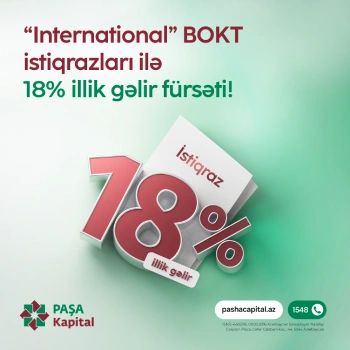
- 37 d. əvvəl
-
46 d. əvvəl
Xamenei Trampı ABŞ gəmilərini dənizin dibinə göndərməklə hədələyib: "İranı məhv edə bilməyəcəksiniz"
- 1 saat əvvəl
- 3 saat əvvəl
- 3 saat əvvəl
- 4 saat əvvəl
- 4 saat əvvəl
-
4 saat əvvəl
Azərbaycanın ən çox ixrac və idxal etdiyi mallar - YENİ SİYAHI
- 5 saat əvvəl
Son Xəbərlər

Azərbaycanda Vakansiyalar - Azvak.az
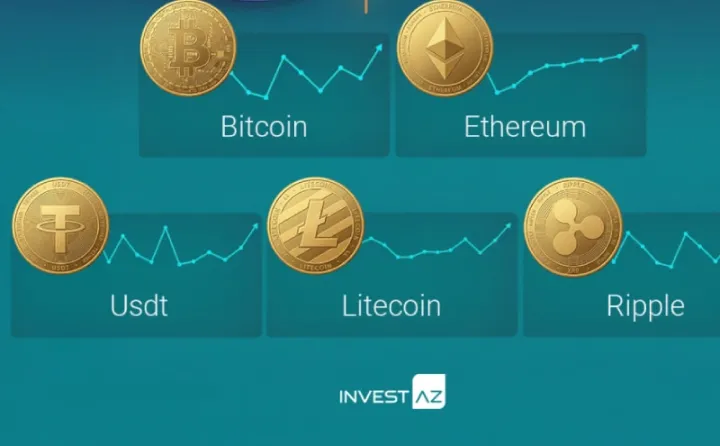
Kriptovalyuta ticarəti kursu

EY İlin İş Adamı müsabiqəsinin qalibi açıqlandı
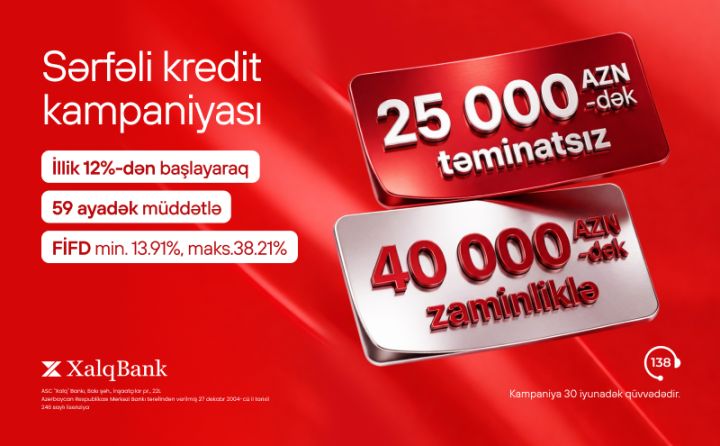
Sərfəli şərtlərlə istehlak krediti

Müasir marketinq: səs-küydən mənaya doğru

Azərbaycanın ən çox ixrac və idxal etdiyi mallar - YENİ SİYAHI

Suraxanının İcra başçısına töhmət verilib
Ən çox oxunanlar

Azərbaycan neftinin son qiyməti

Novruza özəl yeni “Uduş xonçası” lotereyası satışa çıxıb - 4 milyon manatdan çox uduş var

Rəsmi məzənnələr açıqlandı

Nestle, Danone və Lactalis barəsində cinayət işi açılıb - məsul rəhbərlər 7 ilə qədər həbs cəzası ilə üz-üzə

Daha bir ölkə Avroya keçə bilər





